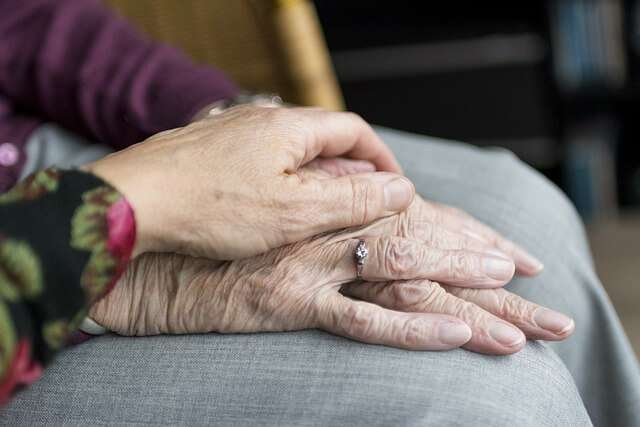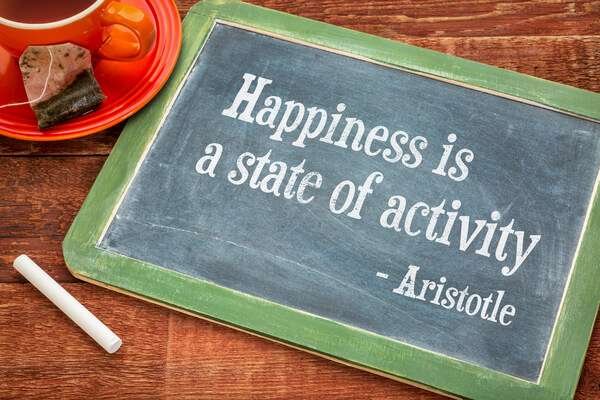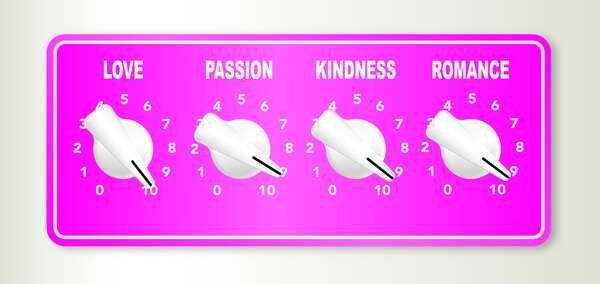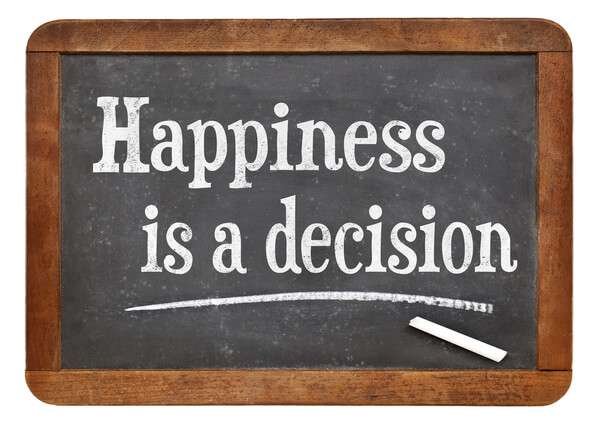30 Day Kindness Challenge – Day 15 Improve Well-Being
Being Kind Can Reduce Doctor Visits and Improve Well-being Welcome…
Being Kind Can Reduce Doctor Visits and Improve Well-being
Welcome to Day 15 of our 30-Day Kindness Challenge. Today, we’re talking about Kindness, Doctor Visits and Well-being. In particular, discover how practicing kindness can lead to fewer doctor visits and enhance your overall well-being.
If you’re just joining us or listening for the first time, let me tell you what we’ve been doing.
Every day in November, I’m doing a short podcast about kindness.
I will talk about some kindness facts and give you a kindness challenge.

Kindness Promotes Good Physical and Mental Health
- Kindness has positive effects on physical and mental health.
- Acts of generosity boost happiness and well-being.
- Small and large acts of kindness both have an impact.
- Prosocial behavior increases well-being.
- Giving directly and socially connected acts are more beneficial.
- Volunteering and helping others lead to better physical health.
- Kindness can positively affect gene expression.
- Kindness is essential for mental health and well-being.
Todays Podcast
Benefits of Kindness
- Acting kindly makes us feel good.
- Motivates us to do more kind acts, making life feel valuable.
- Kindness is contagious and has a ripple effect.
- Receiving kindness boosts emotions and inspires more kindness.
- Kindness makes you more attractive. (Compassion is biologically attractive to people).
Kindness Can
- Slow Down Aging: Acts of kindness are believed to help slow down aging.
- Kindness boosts happiness: Acts of kindness release dopamine, leading to a happier mood (Helper’s High).
- Kindness benefits the heart: Acts of kindness trigger oxytocin release, expanding blood vessels, reducing blood pressure, and protecting the heart.
- Kindness slows aging: Oxytocin reduces free radicals and inflammation, slowing the aging process in the cardiovascular system.
- Kindness enhances relationships: Kindness reduces emotional distance, strengthens bonds, and is rooted in our evolutionary history.
- Kindness is contagious: Acts of kindness create a ripple effect, positively impacting up to 125 people, fostering a culture of kindness.

Workplace Benefits of Kindness
- Compassion in business, politics, and sports yields positive results.
- Creates a positive work environment and better employee performance.
Kindness Has Health Benefits
- Lowers stress hormones and calms the fight-or-flight response.
- Release of oxytocin, the bonding hormone, reduces fear and anxiety.
- Giving in person fosters emotional rewards and social connectedness.
Kindness Can Be Learned and Strengthened
- Nature and upbringing influence kindness.
- Empathy traits can make some naturally kind.
- Kindness is a skill that can be developed, like building muscle.

How Kindness Fits Into a Happy Life
Kindness is essential for sustaining relationships and building a trusting society. Additionally, it can improve your wellbeing and enhance your overall physical condition. A recent review of kindness research analyzed 126 articles with almost 200,000 participants worldwide. The results showed that people who practice kindness tend to have higher well-being.
Small acts of kindness, like helping a neighbor or holding the door for someone, have a bigger effect on happiness than bigger acts like donating to charity. Being kind is also linked to finding meaning and purpose in life rather than just seeking pleasure and comfort.
Women and younger people tend to experience more happiness from kindness. Kindness is also linked to higher self-esteem, self-efficacy, and improved physical health.
The reasons behind the different effects of kindness on different groups are not fully understood. However, understanding the connection between kindness and well-being can lead to better studies and innovative kindness practices. Practicing kindness benefits both others and ourselves, making it a universal virtue.

The Science of Social Connection
Being kind to others creates a feedback loop of social, emotional, and physical well-being. According to Stanford Medicine’s Center for Compassion, Altruism Research and Education, social connections are extremely important for good health. Practicing acts of kindness is a great way to connect with people socially.
Social connection is good for our health. Not having social connections is worse for our health than obesity, smoking, or having high blood pressure. Let’s take a look at the benefits of social connections and its impact:
Benefits of Social Connections
- Increases chance of longevity by 50%.
- Strengthens the immune system.
- Speeds up disease recovery and may lengthen life.
- Reduces anxiety and depression.
- Boosts self-esteem, empathy, trust, and cooperation.
- Generates a positive feedback loop for well-being.
- Has a Positive Effect on Happiness
Consequences of Low Social Connection:
- Declines in physical and psychological health.
- Higher likelihood of antisocial behavior and isolation.
- Loneliness is on the rise in the US.
- Modal number of close friends has decreased over time.
- Loneliness can lead to psychological counseling seeking.
- Vulnerability to anxiety, depression, and suicidal behavior.

75%-90% Of Doctor Visits Are Stress Related
In the United States:
- Between 75% and 90% of medical visits are stress related.
- Work-related stress is responsible for over 120,000 deaths every year.
- These figures contribute to a healthcare cost of $190 billion annually in the US
- Western countries have similarly high costs.
Fortunately, research has shown that practicing kindness can be an effective strategy for reducing stress and minimizing its negative impact on the body.
Chronic Stress Can Lead to a Range of Mental and Physical Health Problems, Including
- Depression
- Anxiety
- Heart Disease
By engaging in acts of kindness and demonstrating care towards others, we can manage stress, strengthen resilience, and enhance well-being and happiness.

Kindness Media in Healthcare Environments
Researchers are exploring the use of Kindness media to enhance healthcare environments, patient and staff satisfaction, and reduce stress. Kindness media fosters kindness by making people feel good and connected. This can improve the relationships between patients and healthcare providers, which may lead to better healthcare outcomes.
Kindness media in healthcare settings makes people happier and more generous. It’s important for diversity, inclusion, and health fairness. Kind media, like positive videos or pictures, can make us feel good, help us connect with others, and encourage us to be kinder.
Healing Through Helping
A study looked at the effects of kindness, social activities, and changing perspectives on well-being. Social connection is crucial for well-being, but people with anxiety or depression often struggle to make and keep these connections. Traditional therapy may not work, but being kind can help.
The study involved 122 participants. It found being kind to others makes people feel more connected, less depressed and anxious versus trying to change their mindset or being socially active.
Being Kind makes you feel better than therapy does.

Why being kind is good for your health
Acts of kindness have a positive impact on the brain, boosting neurotransmitters and hormones. It benefits both mental and physical health by releasing dopamine, oxytocin, and serotonin while lowering cortisol levels. Kindness also lowers blood pressure, reduces stress, supports weight loss, and acts as a natural painkiller.
It increases energy levels and activates the pleasure and reward centers in the brain. Small acts of kindness are a simple and cost-free way to improve overall well-being and happiness, regardless of recognition or reward.
Kindness and Optimism
Optimism is linked to a longer lifespan. Women who are more optimistic live about 5.4% longer (approximately 4.4 years) on average than less optimistic women, regardless of their racial and ethnic backgrounds.
Optimistic women are also more likely to achieve exceptional longevity (living over 90 years), and this trend was consistent across all racial and ethnic groups. Lifestyle factors like exercise, diet, and smoking history only accounted for 25% of the link between optimism and longevity. This suggests that other factors are involved.
More optimistic men experience fewer negative emotions. Over 50% of this link is attributed to reduced exposure to daily stressors.
Optimism is a modifiable characteristic that can be improved through interventions like practicing kindness, writing exercises, and therapy. This can potentially lead to better health, happiness and longer life spans across diverse populations.

The Science of Kindness
- Being kind and compassionate has positive effects on stress, mood, and relationships.
- Acts of kindness promote altruism and happiness.
- Watching or reading about kindness makes us happier and more generous.
- Doing kind things improves our well-being.
- Kindness can help with pain management and strengthen bonds.
- It also has benefits for the common cold and mental health in general.
A study by Carnegie Mellon University researchers involving 1,164 adults aged 51 to 91 found that those who volunteered 200 or more hours were 40% less likely to develop hypertension.
The type of volunteer activity did not matter; only the amount of time spent volunteering provided protection.
Social connections made through volunteering may promote healthy aging and reduce health risks.
TED Talk: “The Power of Kindness” by Raegan Hill
Kindness unites people, regardless of differences. Raegan discusses the health benefits of kindness, emphasizing honesty, humility, and avoiding harm. With data, she shows how kindness benefits others and ourselves.
Todays Kindness Challenge
- Print Out “You Matter” Cards!
- Check-in with a friend or family member you haven’t heard from in a while to make sure they’re doing well.
- Compliment a loved one in the morning to make their day bright as it starts.
- Write an encouraging note with sidewalk chalk outside to brighten the day of people who see it.
- Send a card in the mail to someone you miss.
- Leave some treats or a small gift on a neighbor’s doorstep.
- Go play a board game with someone at an old folks home.
- Tell someone a funny joke.
- Offer to cover someone’s shift so they can have a day off.
- Put a note on someone’s car that says “I hope you have the best day ever!”
- Cook Someone’s Favorite Meal.
- Be kind to yourself.

Here are a few ideas for self kindness:
- Practice self-kindness by setting aside time for self-reflection and introspection. Journal, meditate, or engage in quiet contemplation to nurture your inner world.
- Practice self-kindness by prioritizing restful sleep.
- Let go of comparison, grudges and resentments. Make room for #healing and #compassion.
- Get a pedicure or manicure.
- Learn something new – a language, instrument, etc.
- Attend a live theater or music performance.
- Practice positive affirmations.
- Watch a sunrise or sunset.
- Write down your accomplishments and feel proud.
- Start a gratitude journal.
- Cultivate kindness for yourself. Exchange self-criticisms for words of affirmation and encouragement. Establish a habit of speaking kindly to yourself.
- Treat yourself with kindness by setting healthy boundaries in your relationships. Prioritize your needs, communicate openly, and let go of toxic connections. You deserve relationships that nurture your well-being.
Well, that’s all for today, come back tomorrow for the World Kindness Day Challenge!

